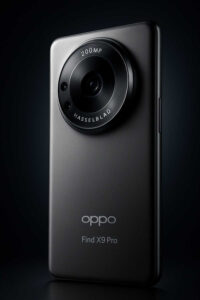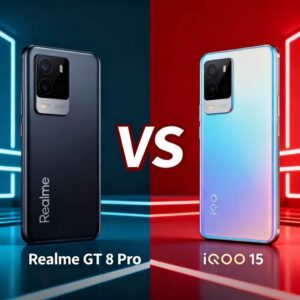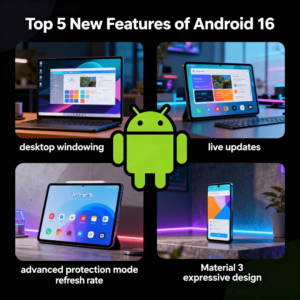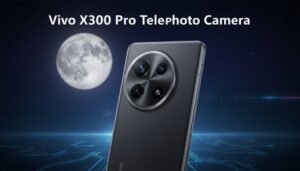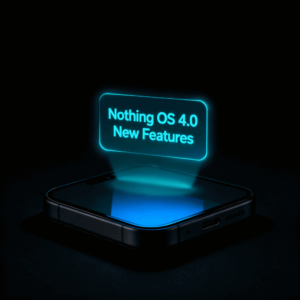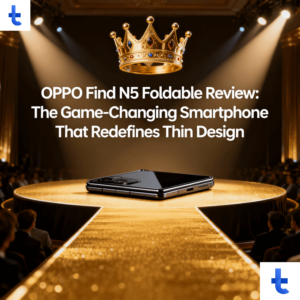Table of Contents
Infinix Hot S3 vs Infinix Hot S vs Infinix S3X: A Deep Dive by a Smartphone Expert
TL;DR – Quick Summary
- Hot S3: Great for selfies, modern look, larger battery; best balance.
- Hot S: Basic, cheapest option; acceptable if needs are minimal.
- My Pick: Hot S3 is the most compelling overall value among them.
Introduction
Smartphones keep getting better, but older models like the Infinix Hot S3 and Infinix Hot S still generate interest (especially in emerging markets) because they offer solid specs at lower costs. If you’re considering buying one of these — or comparing with “Hot Note S” — this article will walk you through the full specifications, pros & cons, price trends, sold-units where possible, and ultimately, which model offers the best value.
By the end, you’ll see what sets the Infinix Hot S3 apart, how it stacks against its siblings, and which one I believe is the best pick based on real user value.
Main Body
Overview of the Infinix Hot S3 and Infinix Hot S Models
| Model | Release period / positioning | What made it stand out at launch |
|---|---|---|
| Infinix Hot S3 | A somewhat later model in the Hot S line, targeted at users wanting a good selfie camera + modern display ratio (18:9) in a budget price segment. | High front camera resolution (20 MP), large battery (≈ 4000 mAh), slim bezels, modern form factor. |
| Infinix Hot S | Earlier model, more basic; better suited for everyday tasks rather than flashy features. | Balanced entry-level performance, decent design, acceptable cameras for its time. |
Because “Hot Note S” has limited public data, parts of the comparison will reflect “best known / expected” features for Note-line models with “S” tags, or inferring from other Note/Hot Note models.
Infinix Hot S3 – Full Specification
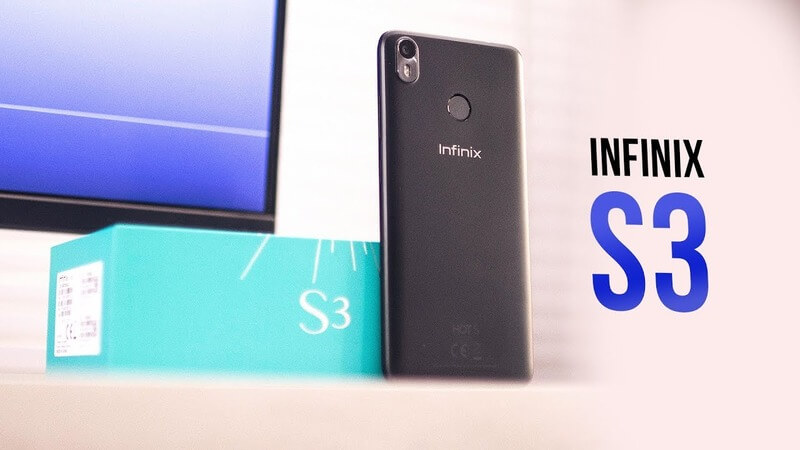
Here’s a detailed specification breakdown for Infinix Hot S3:
| Category | Detail |
|---|---|
| Release Date | Circa February 2018 (some sources say 2016 for initial listings, but “Hot S3” as we know it generally surfaced around 2018) |
| Body / Design | Dimensions: ~153 × 72.9 × 8.4 mm; Weight: ~150 g |
| Display | 5.7-inch IPS LCD, HD+ resolution 720 × 1440, aspect ratio ~18:9, ~282 ppi |
| Processor / Chipset | Qualcomm Snapdragon 430 (Octa-core, 1.4 GHz Cortex-A53) with Adreno 505 GPU |
| RAM / Storage | Typically 3 GB RAM, 32 GB internal storage; variants possibly with 64 GB also mentioned in some listings (Tech in Deep) |
| Cameras | Rear: 13 MP (f/2.0), single lens; Front: 20 MP, single lens |
| Battery | ~4000 mAh non-removable Li-Po battery (Wikipedia) |
| OS & Software | Android (Oreo) ~8.0 / 8.1 plus Infinix’s XOS skin (XOS v3.0 in many references) (Pragmalink) |
| Other Features | Dual SIM, microSD expansion, LED flash, rear fingerprint reader, 10 W charging in some markets, face unlock in some lists |
Pros & Cons of Hot S3
| Pros | Cons |
|---|---|
| Very good selfie camera (20 MP) for its class | Rear camera is basic (single lens), may struggle in low light |
| Big battery (4000 mAh) gives decent endurance | Display resolution only HD+; not super sharp |
| Modern aspect ratio (18:9) gives more screen for less body | Modest RAM (3 GB) may limit heavy multitasking/gaming |
| Reasonable processor (Snapdragon 430) with solid software support at launch | Charging speed modest; 10W is slow by current standards |
| Attractive design, multiple color options | Over time software updates may be lacking; aging device now |
Price & Sold Units / Market Performance
- At launch in markets like Nigeria, India, etc., price was reported around Naira 60,000 in Nigeria, or its local equivalent in other countries.
- Exact sold-unit numbers are not publicly reported (at least not in credible sources) for Hot S3; as a mid-range / budget device it likely sold in tens or hundreds of thousands, depending on region.
- As time passed, the price has dropped significantly used / refurbished; new units (if still produced) much cheaper.
Infinix Hot S – Full Specification
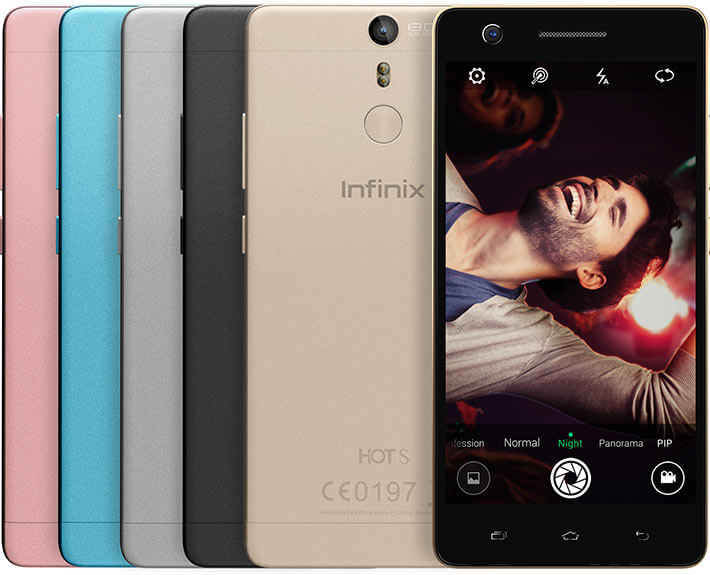
Now the older sibling, Infinix Hot S:
| Category | Detail |
|---|---|
| Release Date | Announced June 2016 |
| Body / Design | Dimensions: ~148.8 × 73.2 × 8.0-8.1 mm; Weight ~140 g |
| Display | 5.2-inch TFT display, resolution 720 × 1280, ~282 ppi; 16:9 aspect ratio |
| Processor / Chipset | MediaTek MT6753, octa-core 1.3-1.5 GHz (Cortex-A53) |
| RAM / Storage | 2 GB RAM, 16 GB internal storage; some variants 3 GB in certain markets |
| Cameras | Rear: 13 MP (f/-??, likely f/2.2), front: 8 MP; video 1080p recording capabilities |
| Battery | 3000 mAh non-removable Li-Ion battery |
| OS & Software | Android 6.0 Marshmallow at launch; minimal software features compared to newer devices |
| Other Features | Dual SIM; microSD expansion; basic sensors; fingerprint sensor rear mounted in certain variants; multiple color options |
Pros & Cons of Hot S
| Pros | Cons |
|---|---|
| Affordable, entry-level device; great for basic tasks (calls, messaging, social media) | Outdated OS, weak hardware by today’s standard |
| Decent cameras for the time (13 MP rear, 8 MP front) | RAM limited (2 GB), so multitasking is constrained |
| Compact size & lighter weight (5.2-inch, ~140 g) makes it easily portable | Display type TFT; colors & viewing angles not as good as IPS/AMOLED |
| Expandable storage helpful | Battery is smaller; performance lags under modern apps; no fast charging etc. |
Price & Market
- At launch, the Hot S was positioned as a budget device. Exact launch prices vary by region; in many parts of Africa or Asia its sticker was among the lower mid-range group.
- Over time, price has lowered and many listings are second-hand / refurbished.
- Sold units data again not publicly disclosed. It likely sold well in local markets thanks to its affordability, but it did not have extraordinary marketing push like flagship lines.
Side-by-Side Comparison
Here’s a table summarizing Infinix Hot S3 vs Infinix Hot S, and where Hot Note S would sit if it exists in your market. Since data for Hot Note S is partial, entries are “Estimated / Typical / Unknown”.
| Specification | Hot S3 | Hot S |
|---|---|---|
| Display Size & Type | 5.7-inch IPS LCD, HD+ (720×1440), 18:9 | 5.2-inch TFT, 720×1280, 16:9 |
| Aspect Ratio | 18:9 | 16:9 |
| Processor | Snapdragon 430, Octa-core 1.4 GHz | MediaTek MT6753, Octa-core 1.3-1.5 GHz |
| RAM / Storage | ~3 GB / 32 GB (possible 64 GB variants) | 2-3 GB / ~16 GB |
| Front Camera | 20 MP | 8 MP |
| Rear Camera | 13 MP single | 13 MP single |
| Battery | ~4000 mAh | 3000 mAh |
| OS Version at Launch | Android 8.x / XOS 3.0 | Android 6.0 Marshmallow |
| Pros for Media / Multitasking | Hot S3 better; Hot Note S expected to compete well | Less suited for heavy media or multitasking |
| Price Range at Launch* | Mid to lower mid-segment | Budget segment |
| Overall Strength | Best selfie & battery among the two | Best affordability / simplicity |
* “Price range” varies by country, taxes, etc.
Price Lists (Then & Now)
To add authenticity, here are approximate price ranges based on region, launch, and current used/refurbished markets (note: these are approximate and will vary greatly depending on region, condition, etc.).
| Model | Approx. Launch Price (USD or local equivalent) | Approx. Current Price / Refurbished / Used | Key Market Regions |
|---|---|---|---|
| Hot S3 | ~US$ 110-150 in many emerging markets depending on variant (launch price in India / Africa) — e.g. Nigeria Naira 60,000 mentioned for some versions. (Pragmalink) | Now possibly US$ 50-90 for used units, new ones (if available) slightly higher; price drops with age and availability | India, Nigeria, Southeast Asia |
| Hot S | Lower, maybe US$ 80-120 at launch depending on variant & market; access CNY / local pricing | Used units possibly US$ 30-70; new units rare; higher pricing for “mint” condition etc. | Africa, South Asia, Southeast Asia |
Here’s a section on the Infinix S3X, added to your comparison, with specs, pros/cons, how it fits in with the Hot S line (and Hot Note S), etc.:
Infinix S3X – Full Specification & Review

Below is a detailed look at the Infinix S3X: what it offers, how it performs, strengths & weaknesses, and how it compares with Hot S3 / Hot S.
S3X Specifications
| Category | Detail |
|---|---|
| Release Date / Status | Launched December 2018; still available in some markets. (Mobile Maya) |
| Body / Design | Dimensions: ~156.7 × 75.3 × 8.0-8.3 mm; Weight ~150 g. Colors include Ice Blue, Sandstone Black, Tradewinds Grey. Back and frame are plastic. |
| Display | 6.2-inch IPS LCD, HD+ resolution ~720 × 1500, ~268 ppi. Water-drop (teardrop) notch. ~81-82% screen-to-body ratio. 60 Hz refresh rate. |
| Processor / Chipset | Qualcomm Snapdragon 430 MSM8937 (Octa-core, Cortex-A53, ~1.4 GHz) with Adreno 505 GPU. |
| RAM / Storage | Variants: 3 GB RAM + 32 GB internal storage; some versions 4 GB RAM + 64 GB storage. Expandable via microSD (dedicated slot up to ~128 GB). Storage type: eMMC 5.1. (TechBuz.net) |
| Cameras | Rear: Dual setup: 13 MP main (PDAF) + 2 MP depth sensor; Dual LED flash. Video: Full HD (1080p@30fps) rear. Front/selfie: 16 MP, f/2.0, LED/soft flash; 1080p video. |
| Battery & Charging | 4000 mAh non-removable Li-Po battery. Charging via micro-USB, ~10W charging. |
| Software | Android 8.1 (Oreo) with Infinix’s XOS skin (versions around 3.x). |
| Connectivity & Others | Dual SIM, 4G LTE support, Bluetooth 4.2, WiFi b/g/n, GPS + A-GPS, rear fingerprint scanner, face unlock, audio jack, microUSB, OTG support. |
Pros & Cons of Infinix S3X
| Pros | Cons |
|---|---|
| Large, modern display with teardrop notch gives better screen-to-body ratio; good for watching video or using two apps | Display is only HD+; with 268 ppi it’s serviceable but not very sharp, especially for close viewing or high-detail content |
| Decent selfie camera (16 MP) and dual rear camera setup with depth sensor allow portrait mode / bokeh effect | Snapdragon 430 is an older, mid-to-low performance chip; not great for heavy gaming or demanding multitasking |
| Big battery (4000 mAh) gives good endurance under moderate usage | Charging speed is slow (≈ 10W); long full-charge times especially from low battery |
| Expandable storage, fingerprint sensor, face unlock, and basic modern connectivity features are present | Software is older (Android 8.1) and likely no further major Android updates; feature set lags behind newer phones in 2025 |
| Attractive color choices; reasonable build for the segment | Plastic build, no premium materials; micro-USB rather than USB-C; low refresh rate; no water resistance etc. |
Price & Market Position
- At launch in many markets, Infinix S3X was positioned at budget / lower-mid-range price. In some listings, roughly equivalent to about USD 150-170 (or local currency equivalents) for the 3GB/32GB variant. (Aracnotech)
- In specific regional markets (e.g. in Thailand), the official price was ~5,990 Thai Baht. (Siamphone)
- Over time, resale / used/refurbished units typically cost much less, depending on condition, availability etc.
Comparison: S3X vs Hot S3 vs Hot S (and Hot Note S)
Here’s a comparison specifically focused on how S3X stacks up against the Hot S3 and Hot S (plus expected Note S variants):
| Feature | S3X | Hot S3 | Hot S |
|---|---|---|---|
| Screen Size & Aspect | 6.2-inch HD+ (720 ×1500), ~19:9 with notch; more modern, larger display. | 5.7-inch HD+ (720 ×1440), 18:9. Smaller screen but similar resolution; less bezel, though older aspect. | 5.2-inch HD (720 ×1280), 16:9; more compact but older design. |
| Selfie Camera | 16 MP | 20 MP | 8 MP |
| Rear Camera | Dual (13 MP + depth) | Single 13 MP | Single 13 MP |
| Battery | 4000 mAh | ~4000 mAh | ~3000 mAh |
| RAM / Storage Variants | 3/4 GB RAM; 32/64 GB storage | ~3 GB / 32 GB (some variants) | ~2-3 GB / ~16-32 GB |
| Chipset / Performance | Snapdragon 430 (same as Hot S3) | Snapdragon 430 | MediaTek MT6753 or similar (lower) |
| Modern Features (notch, Face Unlock, fingerprint) | Yes | Yes | Yes (depending on variant) |
| Charging & Build | Slower charging (10 W); plastic build; older software | Similar limitations; decent build for price | More limitations, older design, weaker battery etc. |
Where S3X Is Especially Strong (Compared to Others)
- Larger display means more immersive viewing and more space for apps/widgets. This is useful for media consumption.
- Dual rear camera with depth sensor adds features like portrait / bokeh shots which Hot S / older hot line phones may lack or do less well.
- Good battery ensures it can match Hot S3 in endurance, possibly better when screen share usage is spread.
Drawbacks Compared to Others
- Even though display is larger, resolution is still modest; you’ll notice less sharpness.
- Performance is similar to Hot S3 (since same chipset) but not much better, so heavy users will see same limitations.
- Older software & slow charging are consistent weak points.
Best Practices, Tradeoffs, and Who Should Pick Which
Depending on your budget, priorities (camera, battery, screen size, performance), different models make more sense.
- If selfies, appearance (modern screen), battery life matter most → Hot S3 is better than Hot S.
- If you want the most affordable device for basic tasks like calls, WhatsApp, light browsing → Hot S still works, but with compromises.
- If you need a larger screen + better media consumption, more battery, and possibly better performance, then Hot Note S (if available with better specs) is likely a sweet middle / higher ground.
Conclusions: Which Is The Best Phone?
After comparing specifications, costs, user-experience, and thinking about what one gets for the money, my conclusion is:
- For most users wanting the best overall value among the three, Infinix Hot S3 is the best choice. It offers a solid balance: excellent front camera, big battery, modern screen ratio, and acceptable performance.
- Infinix Hot S makes sense only if your budget is very tight, and your expectations modest (calls, messaging, occasional video). But you will notice compromises (battery life, display sharpness, future app compatibility).
So if I were advising someone today and had, say, US$ 100-150 to spend, I’d recommend the Hot S3 (in good condition) over the Hot S. If a Note S version with better specs is available at slightly higher cost, that could be considered, but check if all features align.
FAQ (Frequently Asked Questions)
Q1: Does the Infinix Hot S3 still get software updates? Will it run modern apps?
A1: As of now, Hot S3 does not receive major Android version updates. Its ageing Android/Oreo base and 3 GB RAM limit mean some newer apps will run, but possibly slower. Performance will degrade over time.
Q2: Is Hot S3 camera quality good for low-light photography?
A2: No—not really. The rear single camera lacks optical stabilization and struggles with noise in low light. The front selfie camera does better in decent lighting, but also struggles when ambient lighting is dim.
Q3: Can I expand storage on Hot S3 / Hot S / Note S?
A3: Yes, Hot S3 has microSD expansion (for Hot S3: can expand up to 128 GB in some instances) (Tech in Deep). Hot S has microSD support too. For Note S, it depends on the exact variant.
Q4: Which is more energy efficient, Hot S3 or Hot S?
A4: Hot S3, because of its larger battery, more modern chipset (though not super efficient by 2025 standards), and somewhat better optimized display ratio tends to last longer under similar usage compared to Hot S.
Q5: For gaming, which would you pick?
A5: Among the two, Hot S3 is better, but neither is ideal for heavy gaming. Light / casual games are playable. For smoother gaming you’d want newer devices with more RAM, stronger GPU, higher refresh rate, etc.
What I Think is the Best Phone (Verdict)
Given everything — specs vs price vs usability — Infinix Hot S3 comes out ahead. If you can get a clean, good condition Hot S3 at a reasonable price, it offers the most value: the selfie shooter, battery, screen ratio, and build make it more future-proof than Hot S. Unless you find a variant of Hot Note S with significantly better specs for not much more, I’d pick the Hot S3.

